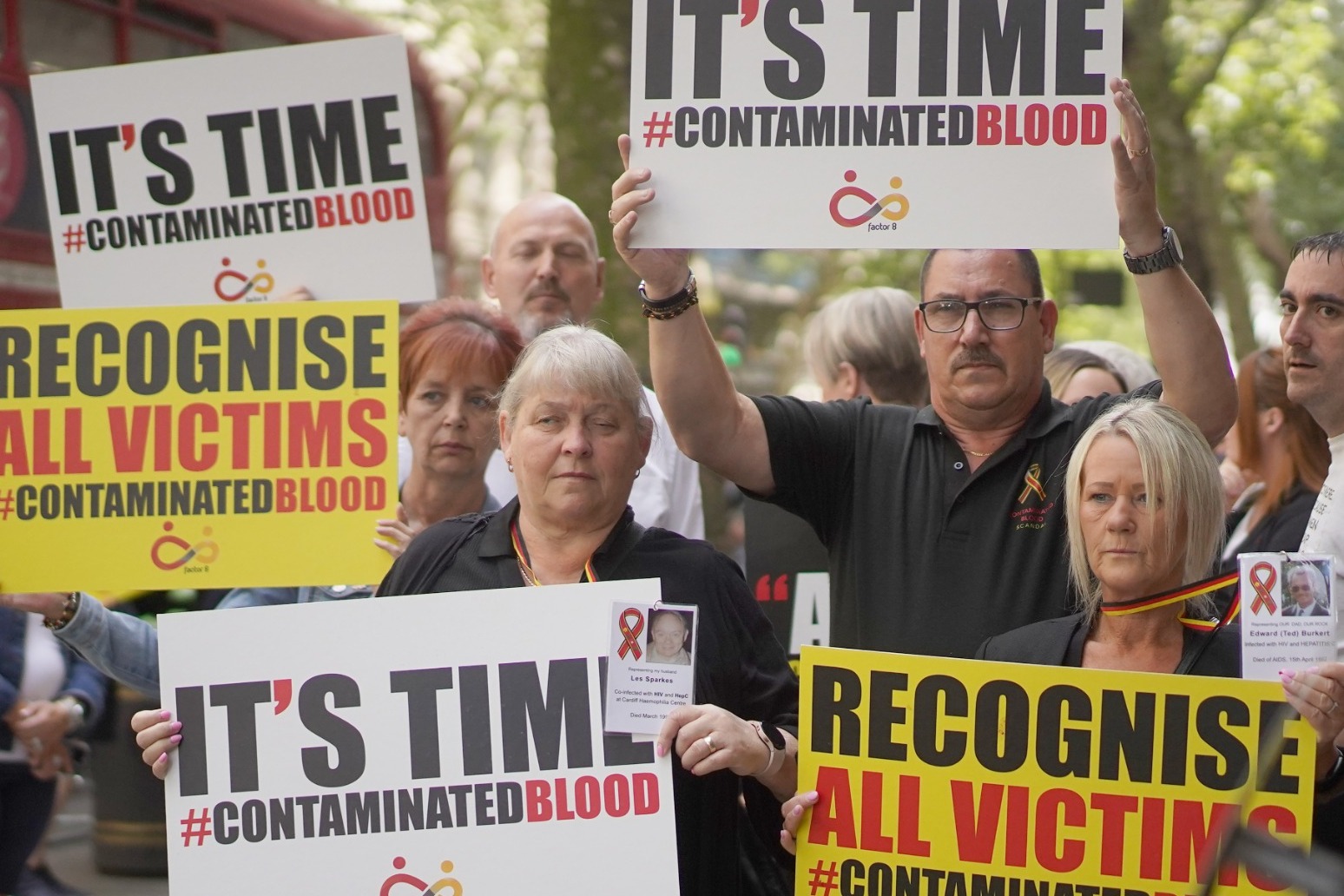
A £15,000 payout for former pupils who were infected with HIV and other viruses while being unwittingly experimented on by clinicians at a specialist school is “derisory and insulting,” a victim has said.
Richard Warwick described the figure as a “kick in the teeth” and, along with other survivors of the trials, is considering taking legal advice on whether to seek a review. Victims of the contaminated blood scandal, which is widely seen as the biggest treatment disaster in NHS history, are set to receive up to £2.7 million each with a £10,000 “unethical research” fee in addition. For people infected at Lord Mayor’s Treloar’s College, where schoolboys undergoing treatment for haemophilia were tested on by NHS doctors who knew the dangers it posed, a higher award of £15,000 has been offered. But Mr Warwick said he did not know “where they plucked the figure from” and that it failed to reflect the gravity of a case that was “perhaps a breach of the Nuremberg (code)”. “We all think it is derisory and insulting,” he told the PA news agency. “It is unbelievable and unfathomable where they got this figure from. It’s a kick in the teeth.” A yearly instalment for cases where victims were subjected to unethical research would have been closer to what they had been expecting, Mr Warwick said. He added: “We are considering taking legal advice.” Mr Warwick was infected with HIV and hepatitis B after receiving blood products at Treloar’s in Hampshire as part of medical treatment for haemophilia, which he was diagnosed with at three-years-old. It comes after the Government announced updates to the compensation scheme on Friday, which included confirmation that victims will be given support payments for life. Payouts under the multibillion-pound plan will start by the end of the year for survivors, and by next year for affected people such as family members under a second set of regulations. Claims for those who have already died – of which there are more than 3,000 – because of the disaster can be made through their estate. On top of compensation, those who were used for research without their knowledge will also be eligible for a £10,000 payment, or £15,000 for those infected during Treloar’s scandal of the 1970s and 80s. It comes after senior barrister and interim chairman of the compensation authority Sir Robert Francis KC made 74 proposals for the rollout of the scheme, of which the Government accepted the vast majority. Some five recommendations will not be implemented, including a suggestion to uprate support payments beyond Consumer Price Index (CPI) inflation. Charities and campaigners have cautiously welcomed the Government’s response, though some, including Mr Warwick, expressed disappointment at the scope of the measures. Paymaster general Nick Thomas-Symonds said “no amount of money can ever make up for what happened” but that ministers had acted in line with the expert advice they had been given. Asked directly about Mr Warwick’s criticism, Mr Thomas-Symonds told Sky News: “I’ve heard Richard Warwick speak very, very movingly about his experience at Treloar’s.” “There was a particularly egregious breach of trust in respect of that school.” The Cabinet Office minister said “no amount of money can make up for the suffering” but that the Government had settled on the £15,000 sum for Treloar’s victims because it had been suggested by Sir Robert. “That is only one small element of the much larger amounts of money that are available under the tariff-based scheme,” he said. “It is important though that we do reflect the fact… that people were subjected to these horrific unethical medical practices.” The Government has not put a figure on how much the scheme might cost overall, though awards for those at the top end are likely to exceed £2.5 million. Mr Thomas-Symonds said a total estimate would be laid out in the Budget red book as work is still ongoing. Some 3,000 people across the UK are estimated to have registered interest with the compensation scheme. Other groups have thanked the Government for moving forward with the payouts but urged ministers to explain their reasoning for not opening the existing support schemes “more widely”. Rachel Halford, CEO of the Hepatitis C Trust, said: “We’re pleased that the Government has listened to the concerns of the infected blood community regarding the continuation of support payments for life, which had been a significant source of anxiety for many of our helpline callers. “We are disappointed, however, that the existing support schemes have not been opened more widely, including to people given hepatitis C after 1991 and those given hepatitis B.” She said the Government must work “transparently” with the infected blood community to explain “the basis for these figures” because “thousands of lives were forever altered when people were given hepatitis C and compensation must reflect that reality.” Jason Evans, who set up the Factor 8 campaign group after losing his father to the scandal aged four, said: “Compensation for those impacted by the infected blood scandal has taken far too long and too many have died waiting. “Today, the picture of what compensation might look like has become clearer, and now it must be delivered.” Des Collins, senior partner of Collins Solicitors who has advised more than 1,000 victims and families involved in the infected blood scandal, said: “It is clearly good news that the scheme will be up and running by October and ready to receive applications from the infected, both those living and from representatives of those now deceased. “It is somewhat surprising that those affected will need to wait longer than those infected to make an application but at least there is a guide on timescale.” “The infected blood community are now assured of informed and independent legal support going forward which for many will be a great relief.”
Published: by Radio NewsHub










